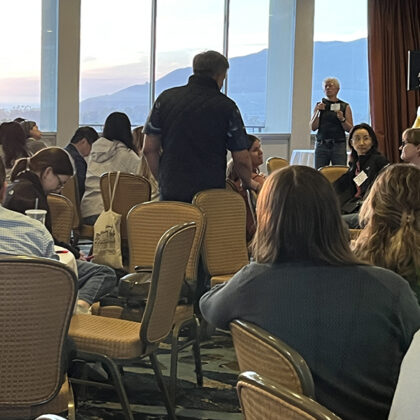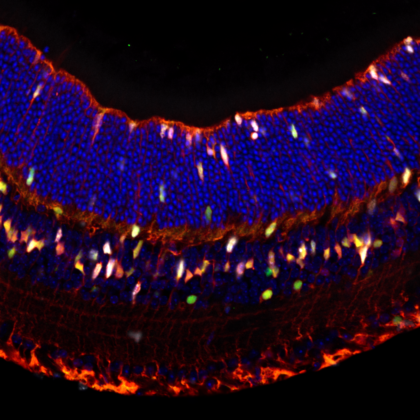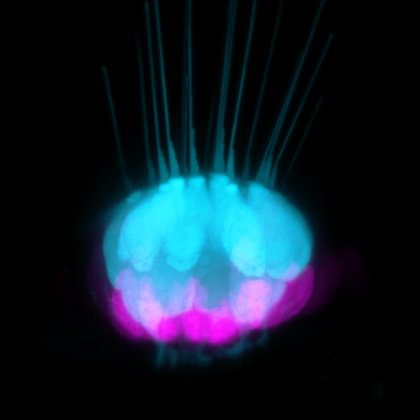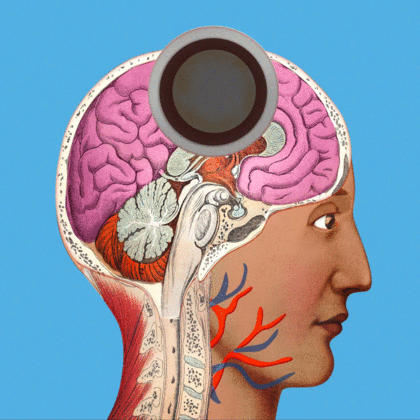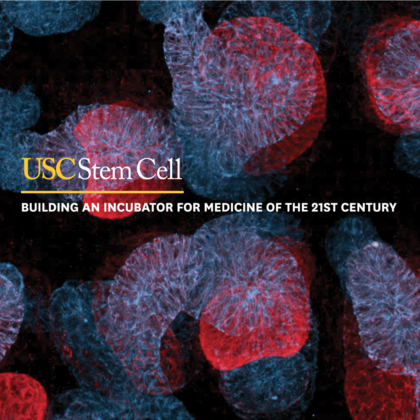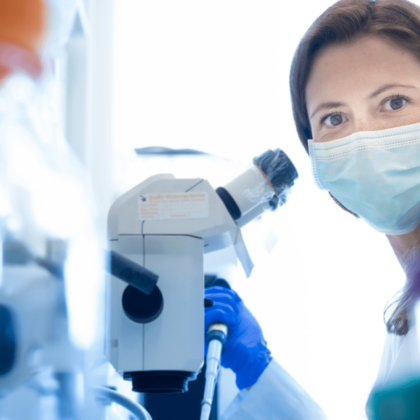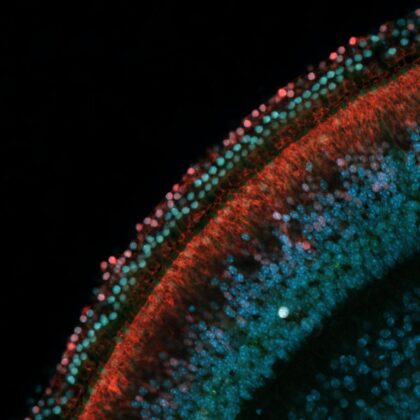Dr. Gnedeva’s laboratory interrogates how molecular signaling and tissue mechanics control embryonic sensory organ growth and how the developmental programs of self-renewal and differentiation can be re-initiated in the mammalian inner ear after damage. Although the focus is on hearing and balance restoration, the lab has broader interest in the common mechanisms that suppress regeneration in specialized sensory tissues.
Stories
Getting lost in translation—the clinical kind—at USC’s stem cell retreat
At the retreat for USC’s Department of Stem Cell Biology and Regenerative Medicine, newly appointed leader Chuck Murry shared a vision as sweeping as the panoramic view of the Pacific Ocean from …
USC Stem Cell mouse study identifies shared genes involved in hearing and vision regeneration
The same genes could hold the key to regenerating cells in the ear and eye, according to a new mouse study from the USC Stem Cell laboratory of Ksenia Gnedeva, published in …
USC Stem Cell study breaks the silence on how fish and lizards regenerate hearing
A new USC Stem Cell study published in the Proceedings of the National Academy of Sciences (PNAS) has identified key gene regulators that enable some deafened animals—including fish and lizards—to naturally regenerate …
Cell by cell: Rebuilding the body
USC researchers are revolutionizing how we treat disease by harnessing stem cells as “living medicine.” Anyone who’s healed from a cut or a scrape has witnessed the incredible regenerative power of stem …
Building an Incubator for Medicine of the 21st Century
USC Stem Cell is pleased to introduce our new publication. We hope you’ll enjoy reflecting back on our history, while looking ahead to the transformative times to come. Read now at https://stemcell.keck.usc.edu/wp-content/themes/stemcell/incubator.
Breaking the sound barrier: Ksenia Gnedeva’s transformative research on growth and regeneration in the inner ear sensory organs
Some children dream of growing up to be a ballerina or an astronaut, but Ksenia Gnedeva always knew she wanted to be a biologist. “I remember receiving a microscope for my sixth …
USC Stem Cell mouse studies tune into hearing regeneration
A deafened adult cannot recover the ability to hear, because the sensory hearing cells of the inner ear don’t regenerate after damage. In two new studies, partially funded by the National Institutes …

